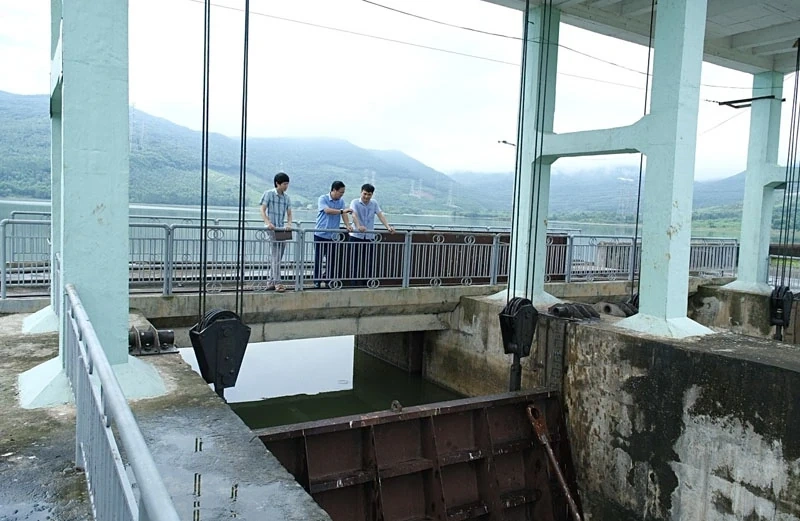
Leaders and workers of Song Chu One Member Co., Ltd. check the operation of the reservoir after the storm, ensuring the safety of the project. Photo: Chi Pham
According to statistics from the agricultural sector, the province currently has 610 irrigation reservoirs, 1,020 dams, 750 electric pumping stations and thousands of kilometers of canals of all kinds. After storms No. 9 and 10, more than 80 structures were damaged at various levels, mainly due to dam slope collapse, spillway erosion, channel damage and canal slope collapse. Some small reservoirs in mountainous areas have been degraded and need urgent treatment to ensure safe water storage.
Song Chu One Member Co., Ltd. currently manages, exploits and protects irrigation systems, including: Bai Thuong irrigation system, Song Muc irrigation system, Yen My irrigation system, 75 large, medium and small dams, 204 pumping stations with 495 pumps of all types from 450 - 8,400m3/h and 8 large drainage systems to irrigate and drain water for 140,868 hectares of cultivated area of 105/166 communes and wards in the province. After the recent storm, many items in Cua Dat lake area, Song Muc lake and the South - North Chu river canal system were affected. Immediately after the storm ended, the company mobilized all technical forces to the scene, coordinated with local authorities to inspect and assess the damage, organized temporary reinforcement of key locations, and at the same time made a plan for thorough repairs before the new production season.
The company's leadership representative said that the unit regularly organizes 24/24 duty during storms, updates the flood situation, and promptly reports to the Provincial Civil Defense Command. At the same time, the company has proactively reviewed the flood drainage and water storage capacity of each project, especially large reservoirs, to ensure absolute safety during the water storage period at the end of the year. In addition, the work of dredging canals, clearing flows, and handling leaks is also being implemented synchronously at many management branches.
Similarly, the North Song Ma Irrigation Company Limited - the unit managing more than 260 irrigation works in Hoang Hoa, Hau Loc, Nga Son, Ha Trung... was also heavily affected by the storm. Storm No. 9 caused prolonged heavy rain, causing 11 reservoirs and more than 20km of canals to collapse, damaging drainage culverts and overflow tanks. The company mobilized more than 150 officers, workers and 20 mechanical vehicles to temporarily reinforce, dredge mud and soil, and handle landslides. Up to this point, 100% of key works have been reinforced, ensuring safety for water storage for winter-spring crop production.
Mr. Dang Dinh Tuan, Director of Bac Song Ma Irrigation Company Limited, said: “Immediately after the storm ended, we established on-site inspection teams to assess the extent of damage in detail to develop appropriate recovery plans. For lightly affected works, the unit proactively made temporary repairs using regular maintenance funds. For major damaged items, the company compiled and reported to the Department of Agriculture and Environment and the Provincial People's Committee to request financial support for timely repairs, ensuring safety before next year's rainy season.”
In addition to the remedial work, irrigation companies in the province also proactively report and regularly update information to the agricultural sector and localities. Dam safety inspections and assessments are conducted periodically, with special attention paid to degraded works and works in residential areas downstream. Units simultaneously develop and review emergency response plans, strictly implementing the "4 on-site" motto: on-site command, on-site forces, on-site materials and means, and on-site logistics.
On the provincial side, the agricultural sector has directed localities and management units to synchronously implement many solutions to ensure the safety of works after the storm. Specifically, a general review of the system of lakes, dams, spillways, and drainage culverts; prioritizing the allocation of emergency funds to temporarily repair severely damaged items, preventing incidents from occurring when storing water. At the same time, periodic dam safety inspections are carried out and records are established to monitor the safe operation of large and small reservoirs in the area.
The sector also requires localities to strengthen propaganda and raise public awareness of natural disaster prevention, especially for people living in the downstream areas of irrigation works. Management units are assigned to promote the application of technology in monitoring and supervising water levels, warning of heavy rain and landslides, in order to proactively regulate and operate works safely and effectively. Along with that, the arrangement of staff on duty 24/24 hours during heavy rains is strictly implemented, ensuring timely handling of unusual situations.
Thanks to the drastic participation of the agricultural sector, management units and local authorities, up to now, most of the irrigation works in the province have been restored to normal operation, ensuring water supply for production and daily life of the people. Although there are still many difficulties in terms of funding, human resources and equipment, the proactive and responsible spirit of the units has contributed to minimizing damage and protecting the safety of tens of thousands of hectares of agricultural land.
In the coming time, the Thanh Hoa irrigation sector will continue to focus on solidifying and upgrading dams, canal systems, and enhancing the capacity to monitor and manage the safe operation of reservoirs. Irrigation companies are coordinating with localities to review and propose a list of projects that need investment and upgrading before the rainy season next year, prioritizing degraded projects with high risks of insecurity.
Chi Pham
Source: https://baothanhhoa.vn/khac-phuc-cong-trinh-thuy-loi-sau-mua-mua-bao-268664.htm



![[Photo] Unique art of painting Tuong masks](https://vphoto.vietnam.vn/thumb/1200x675/vietnam/resource/IMAGE/2025/11/14/1763094089301_ndo_br_1-jpg.webp)
![[Photo] Special class in Tra Linh](https://vphoto.vietnam.vn/thumb/1200x675/vietnam/resource/IMAGE/2025/11/14/1763078485441_ndo_br_lop-hoc-7-jpg.webp)

![[Photo] Unique architecture of the deepest metro station in France](https://vphoto.vietnam.vn/thumb/1200x675/vietnam/resource/IMAGE/2025/11/14/1763107592365_ga-sau-nhat-nuoc-phap-duy-1-6403-jpg.webp)



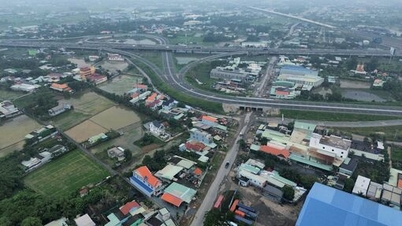



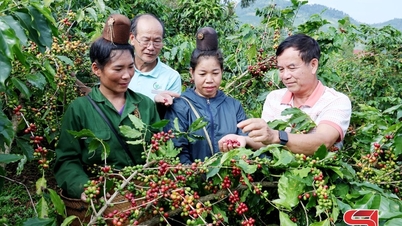

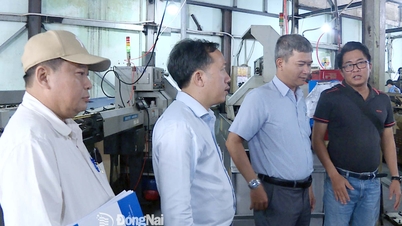

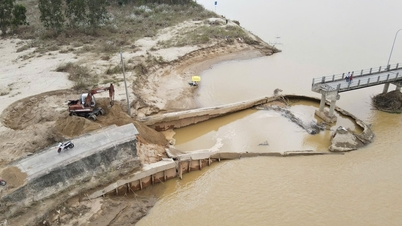








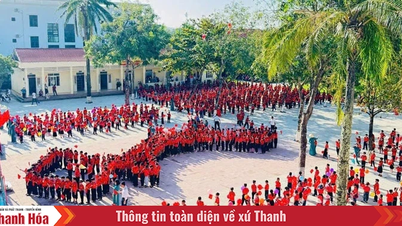

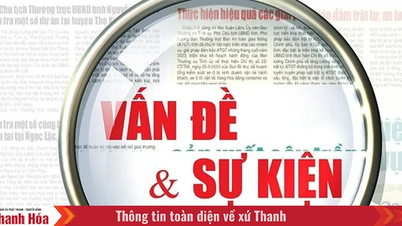

















































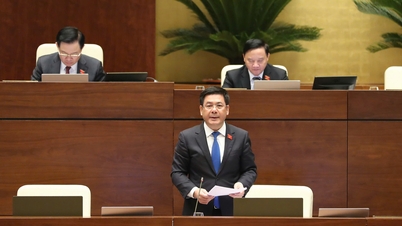












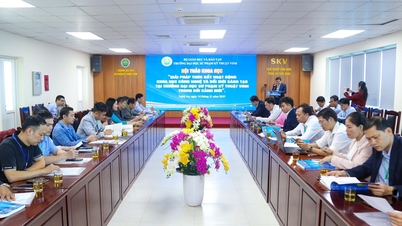













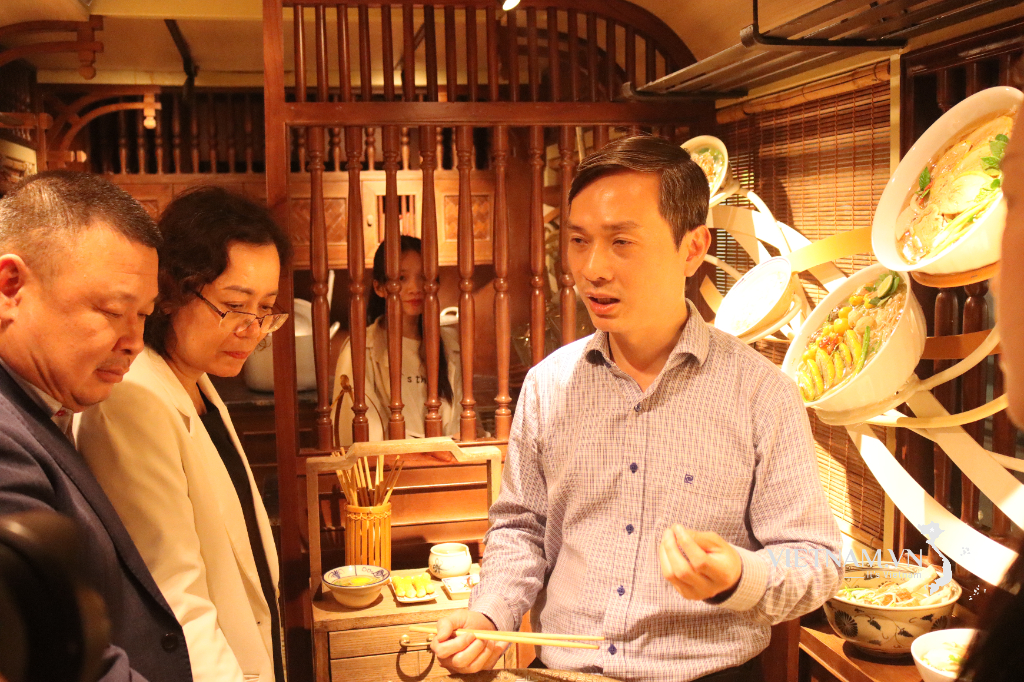
Comment (0)